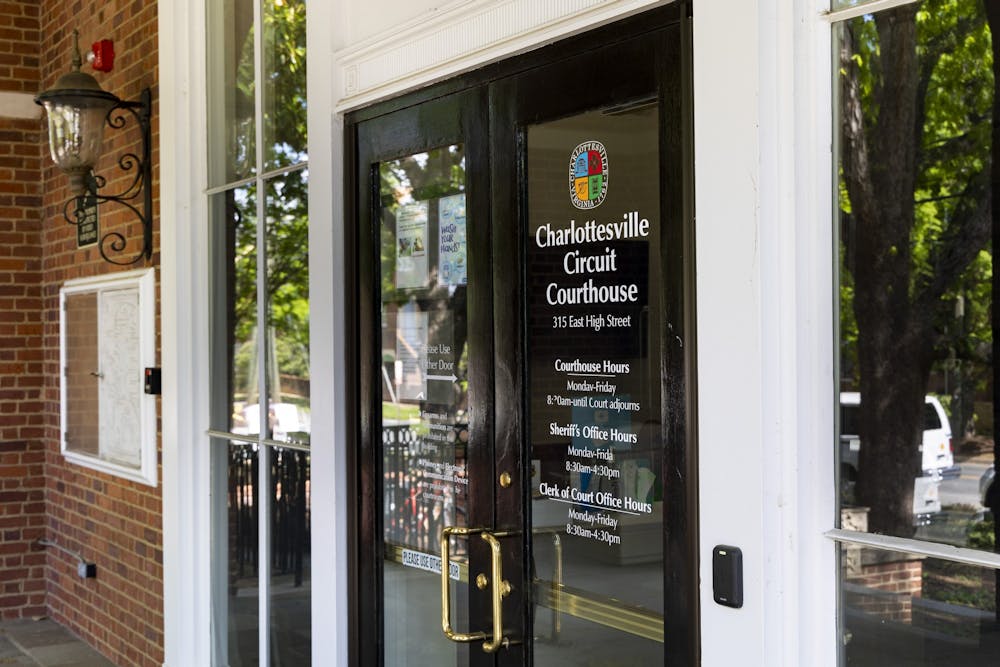In March, Governor Glenn Youngkin made the decision to alter Virginia’s policy which restored voting rights to ex-felons who finished serving their sentences. This regression in policy means Virginia and Kentucky are the only two states where this draconian disenfranchisement of ex-felons occurs. This decision on the Governor’s part is an egregious example of penalizing those who have already paid their debt to society. The policy should not only be reversed but an amendment to the Virginia constitution should be made doing away with the disenfranchisement rule.
A particularly interesting aspect of this development is that Youngkin’s policy contradicts the changes made by Virginia’s last Republican governor, Bob McDonnell. In his time in office, McDonnell spearheaded the campaign to make restoration of voting rights automatic after one had finished serving their sentence. Even Youngkin started his term in office granting rights to 3,500 ex-felons, though with this policy change the numbers have decreased greatly. During the Governorships of Terry McAuliffe and Ralph Northam, even more progress was made enabling ex-convicts to gain back their rights in order to be active participants in society. This bipartisan push towards treating all citizens, regardless of the mistakes made in the past, with respect and dignity is being torn apart by Youngkin’s decision.
Nolef Turns Inc., an organization focused on transitioning ex-prisoners back into society and Gregory Williams, a former felon, have brought a lawsuit against the Governor. They argue that the process Youngkin is using in which his office grants voting rights individually based on application is “purely discretionary and arbitrary” and unconstitutional as a result. Since the Youngkin administration is not presenting elaborated criteria for the new policy, the lawsuit argues the following — “the absence of objective, transparent rules or criteria for restoration opens the door to political or viewpoint discrimination.” A number of factors, from race to political views and everything in between could theoretically be used to justify a rejection of ex-felon voting rights. Thus, this constitutes a violation of the First Amendment in the eyes of the plaintiffs. Although the lawsuit’s end goal is not to make re-enfranchisement universal, and its plaintiffs are solely interested in getting more just criteria articulated around the process, the fact of the matter is that it is an injustice to not grant all felons who have served their full sentences voting rights.
Alongside the lawsuit, efforts in the Virginia legislature to change Youngkin’s mind are being led by Sen. Lionell Spruill, D-Chesapeake. While Sen. Spruill says we should appeal to Youngkin’s “heart,” House Minority Leader Don Scott, D-Portsmouth, has taken a much more confrontational approach. He has called out the nature in which Youngkin’s move mirrors that of the state legislatures who convened in 1902 to create a constitution that would effectively eliminate Black voters through criminalization leading to disenfranchisement. Sen. Spruill’s appeal to Youngkins’ heart may be touching, yet direct action by the Virginia legislature will likely be required if this injustice is to be reversed.
While Secretary of the Commonwealth Kay Coles James would brush off concerns about Youngkin’s decision by saying “every applicant is different,” this is exactly why voting should never be tied to circumstance or identity. It is ultimately tied to one’s rights as a citizen, and while even this method has its flaws, it is what we are endowed with by our constitutional rights. While the 13th Amendment may include the despicable exception to the outlawing of enslavement in the form of punishment through the justice system, the 15th Amendment guarantees that enfranchisement shall not be “shall not be denied or abridged by the United States or by any State on account… previous condition of servitude.” From this, it is only fair to conclude that the end of one’s punishment as executed by the law should result in a citizen's immediate re-enfranchisement.
If the purpose of prisons is for punishment, then it should follow that once one is released from prison their punishment has ended. From this perspective, re-enfranchisement is necessary if we are to have a functioning democracy. If one believes that the purpose of prisons is rehabilitation of inmates, then upon release the prisoner should be considered rehabilitated and thus ready to participate in society and the democratic process. Either way, re-enfranchisement should not be restricted.
What can ultimately be seen as a tough-on-crime political maneuver by Youngkin is a spit in the face of ex-felons who are trying to re-integrate themselves as citizens of the Commonwealth and productive participants in this republic as a whole. Removing the right to vote removes any chance for someone to meaningfully interact with the government representing them. Youngkin should reverse this move immediately and begin to treat all Virginians with respect as opposed to criminalizing them after they’ve paid their penance.
Ryan Lanford is an Opinion Columnist who writes about politics for The Cavalier Daily. They can be reached at opinion@cavalierdaily.com.
The opinions expressed in this column are not necessarily those of The Cavalier Daily. Columns represent the views of the authors alone.







